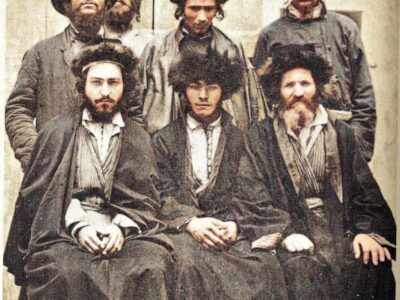In A House of Words: Jewish Writing, Identity and Memory (McGill-Queens, 1998), Norman Ravvin brings a personal level to a collection of scholarly essays that are mostly about Jewish literature. In the introduction, he briefly describes his grandfather’s experience as an itinerant shochet or ritual slaughterer on the Prairies in the 1930s.
Author of Sex, Skyscrapers and Standard Yiddish, an acclaimed book of short stories published in 1997, Ravvin in his newest publication focuses on Canadian writers such as Eli Mandel, Leonard Cohen, Mordecai Richler and Chava Rosenfarb, as well as Americans like Philip Roth, Nathanael West and Saul Bellow.
A House of Words offers nine literary essays, all written in a personal voice. “I make use of my own family background and my own connection with European Jewish history to help me investigate Jewish literature,” Ravvin explains.
One of his interests seems to be in interpreting Jewish mainstream writers like Cohen, Richler and Roth in a more Jewish context than most scholars concede. “I often find a deep lack of knowledge of the role of Jewishness in Jewish literature, and I hope that my reading will go some distance in changing that,” he says.
Ravvin, a literature professor at the University of New Brunswick in Fredericton, also attempts to show how historical memories inform the lives of Jewish characters created by Jewish authors to a degree not widely acknowledged by critics. For instance, he observes: “Even Leonard Cohen, a master of the contemporary, a genius at turning pop iconography to serious ends, cannot keep the spectre of the past from haunting his most carnivalesque fiction.” ♦
© 1998 by Bill Gladstone






